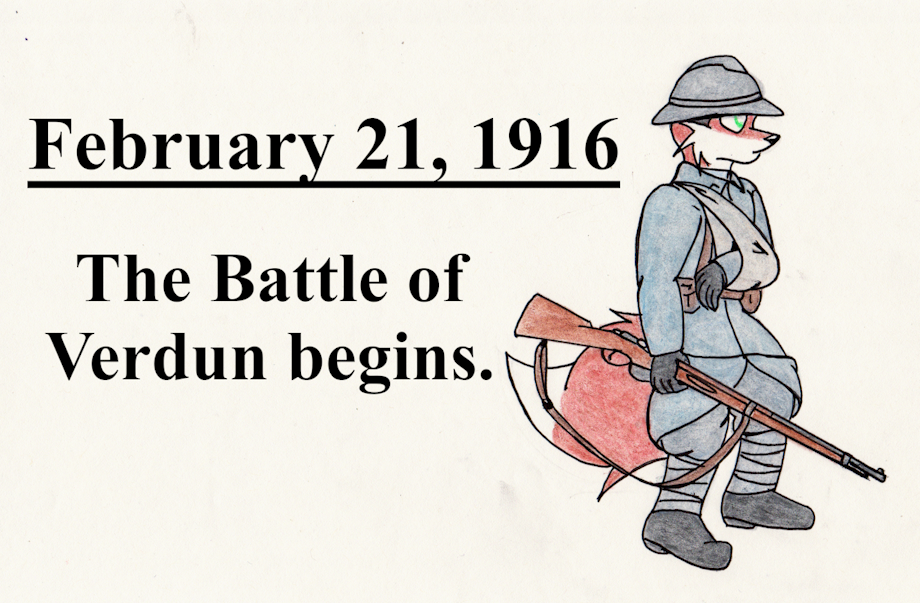On February 21, 1916, the Battle of Verdun began. The area of Verdun had long been a key element in the defense of France, going as far back as the conquest of the Huns led by Attila in 400s through the time of Charlemagne and through the Thirty Years' War. As a result, it had been heavily fortified and highly valuable to the French during World War I. Chief of the German General Staff Erich von Falkenhayn saw Verdun as an opportunity to drive the French out of the war. He believed that if he attacked Verdun, the French would fight desperately to hold their position and would commit their reserves to the battle. He also felt that the British would also drain their reserves in a bid to relieve the pressure on the French at Verdun by opening offensives elsewhere. To give himself an advantage, von Falkenhayn planned to use massed German artillery to overwhelm the French infantry after having seen the destruction suffered by the French against German artillery during the Second Battle of Champagne and the Russians during the Gorlice–Tarnów Offensive.
At 7:15 a.m. on February 21, the battle began as a 10-hour long German artillery barrage fired one million shells, only pausing at mid-day in a ruse to lure out French forces to expose their positions. At 4:00 p.m., German infantry began their assault. By February 27, the Germans had advanced nearly two miles along over six miles of front and had successfully captured Fort Douaumont. By March 6, over 20 French divisions were deployed to Verdun and French artillery soon inflicted their own carnage upon the German forces, just the German artillery had done to the French. Over the next several months, Verdun became the costly meatgrinder too often seen during World War I. Come July, German forces were quietly being redeployed with the beginning of the Battle of Somme though ruses and offensives continued to be conducted in order to keep French forces occupied in Verdun.
On December 15, an intense French artillery bombardment of the German lines marked the beginning of a final French offensive to retake Verdun from the Germans. The Battle of Verdun came to an end on December 18, 1916, having lasted 302 days and thus making Verdun the longest battle of the war. French casualties numbered ~379,000 including 163,000 killed. German casualties are estimated to be ~340,000 men, including ~143,000 killed. For France, Verdun stands as the strongest memory and symbol of the death and destruction of World War I as well as a symbol of valor, courage, and strength of the French soldier. Though the city has rebuilt and life goes on, the lands around Verdun still bear the scars of the battle in mute testimony to the brutality witnessed their in 1916.
Keywords
male
1,262,390,
fox
261,218,
vulpine
38,358,
germany
396,
this day in history
248,
tdih
244,
france
216,
world war one
45,
wwi
43,
february 21
1,
verdun
1,
battle of verdun
1
Details
Published:
6 years ago
22 Feb 2020 03:33 CET
Initial: 8cb3cf029aed6f62e43161541f53b2ec
Full Size: f06f590f6821d1c375ea7c57b9a2cf9a
Large: 8efa681c83763b3741fb49b78a83bb32
Small: 87ce530ca8e3f603ccf78a5010cac0fe
Stats
23 views
7 favorites
1 comment
